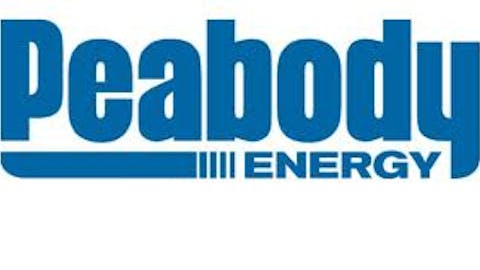Coal has been beaten up in the media and the markets over the past year or so. Being outspoken against coal has been made easy by cheaper, cleaner-burning natural gas, which has been produced in abundance here in the United States recently.

The largest player in the business, Peabody Energy Corporation (NYSE:BTU) , has found itself operating in both the western U.S. and Australia, which has allowed it great access to the import markets of China and India. Record exports helped carry Peabody Energy Corporation (NYSE:BTU) and its peers through 2012’s dormant domestic market, but does Chairmen and CEO Greg Boyce see this continuing?
We would expect a growing reliance on imports to help satisfy India’s continued build-out to meet its energy needs. Japan and Europe also increased thermal coal imports in 2012, as coal continued to substitute for declining nuclear generation, and as international gas prices remain high. We expect to see burn thermal coal demand to grow in 2013 in excess of 40 million tons. We look for approximately 75-gigawatts of new coal-fueled generation to come online globally in 2013, which will require another 250 million tons annually at full capacity.
With positive sentiment remaining abroad for coal, what does he expect here in the U.S.? Will there be a shift or simply continuation of the status quo?
In 2013, we expect an improved supply/demand balance as stockpiles normalize, led by a 40 million to 60 million ton increase in US coal use. We expect US met and thermal coal exports to fall from 2012, due to current pricing in the seaborne market. Based on producer announcements and early trends we are seeing so far this year, we would expect US production to continue to decline in 2013.
In 2012, Alpha Natural Resources, Inc. (NYSE:ANR) doubled its exports of eastern thermal coal as volumes reached 6 million tons shipped. This is an area that Chairman and CEO Kevin Crutchfield says the company feels confident about the its ability to expand. Further encouraging news, he says, will emerge from the realignment of the supply and demand dynamic.
Since bottoming with spot prices reported in the low $140’s per metric ton late in the third quarter, the Asian market has strengthened as a result of reacceleration of Chinese manufacturing activity, steel restocking efforts, and record high Chinese coking coal imports in December … And the current pricing is insufficient to sustain the large portion of the remaining global production base, these raise the odds that better times lie ahead. And those odds increase further if growing Asian economies start to consume a larger portion of a smaller natural supply base.



